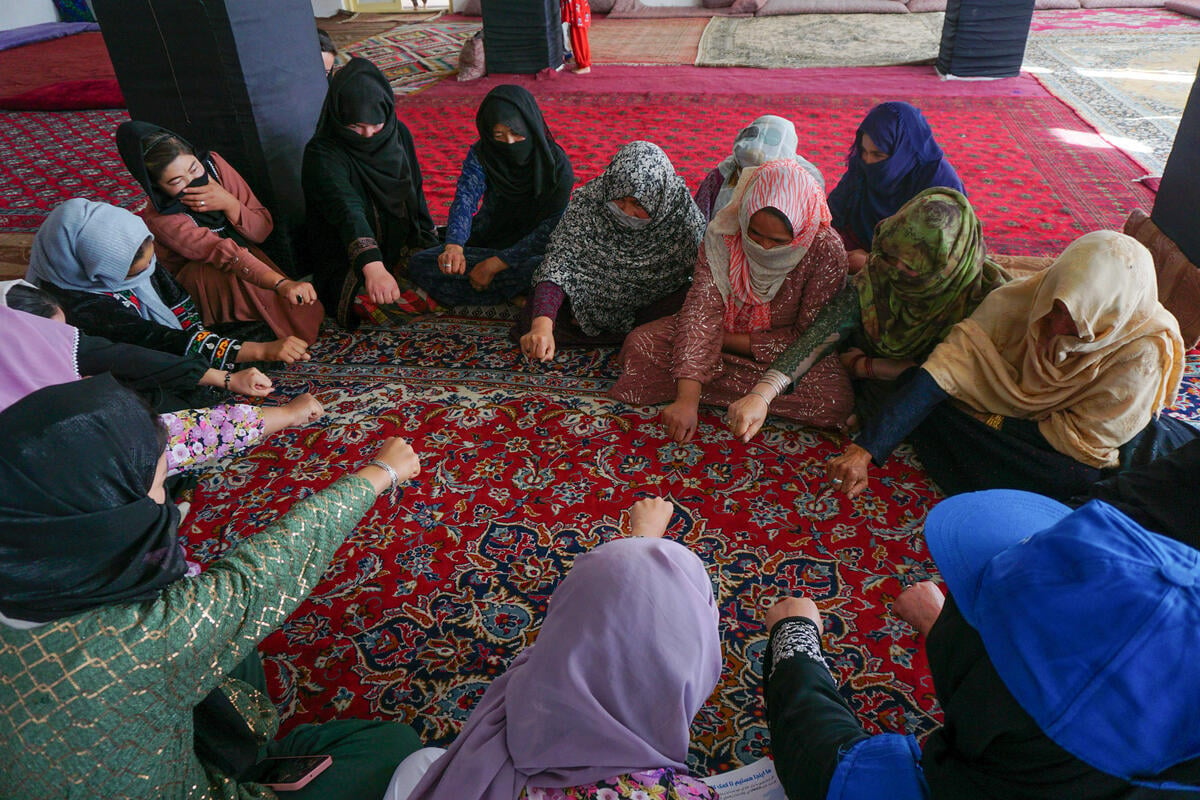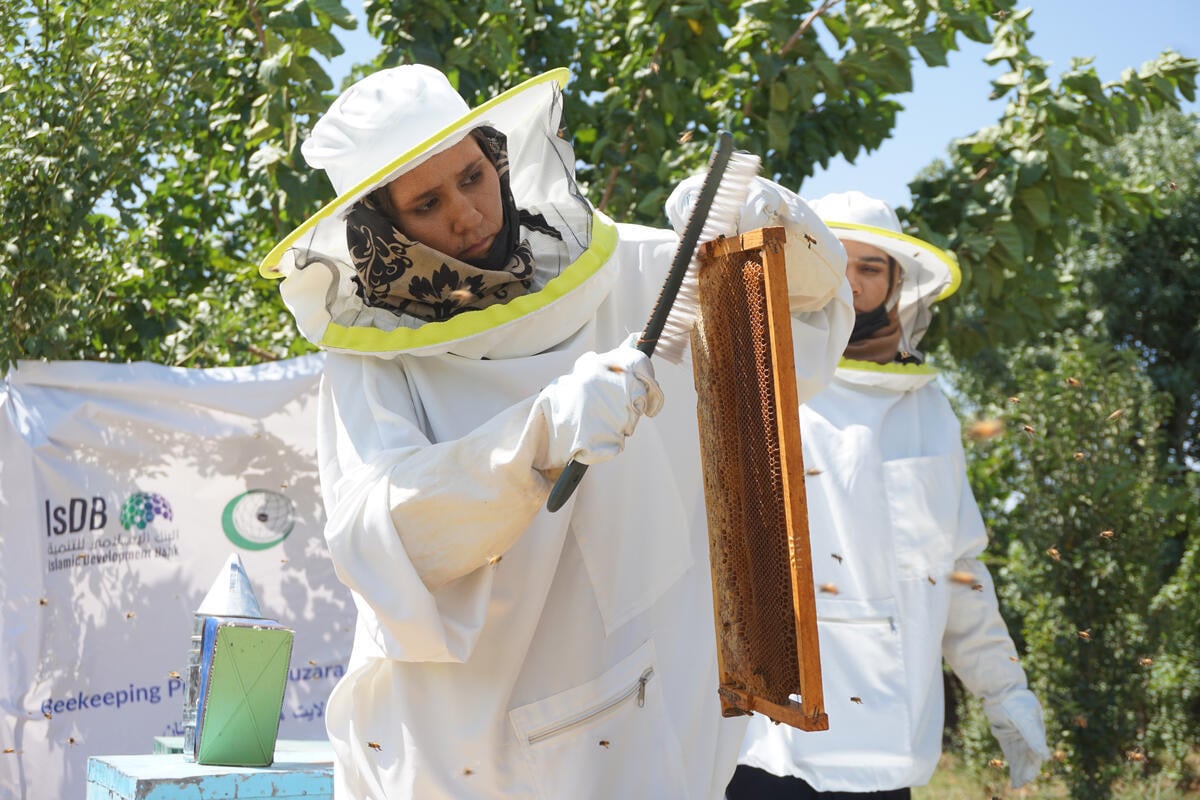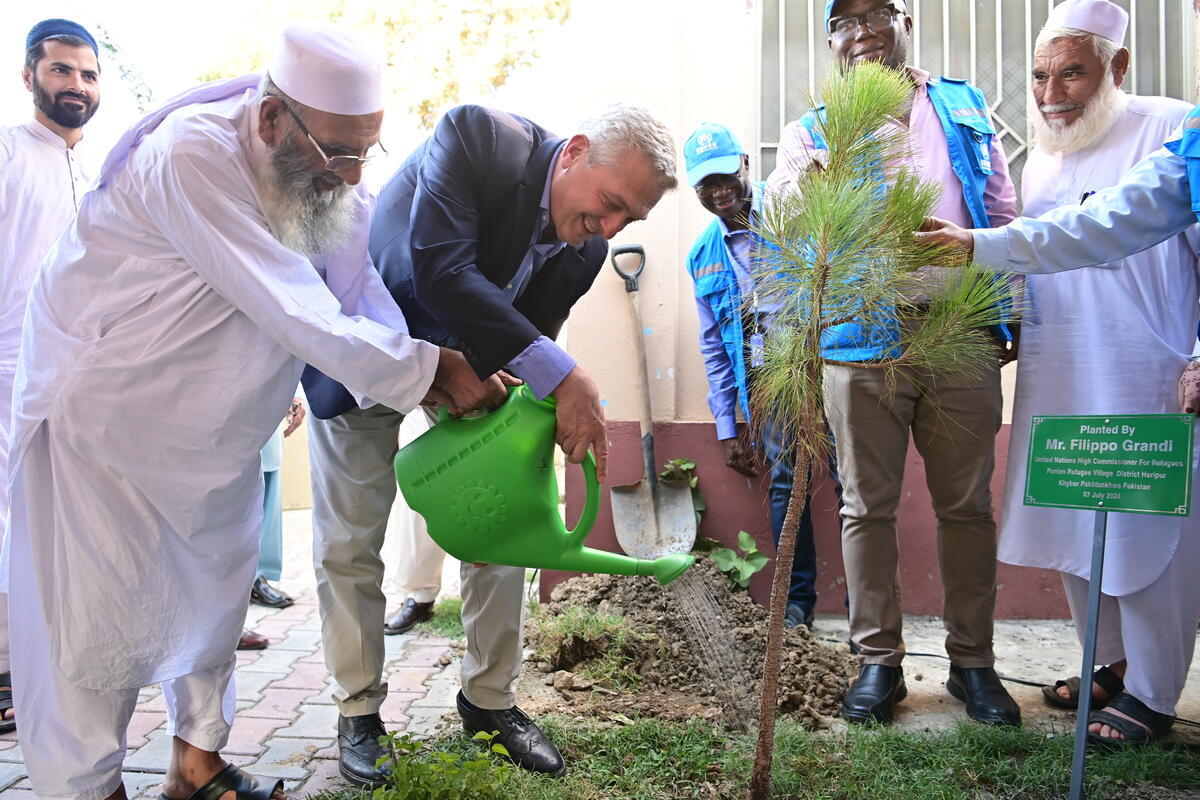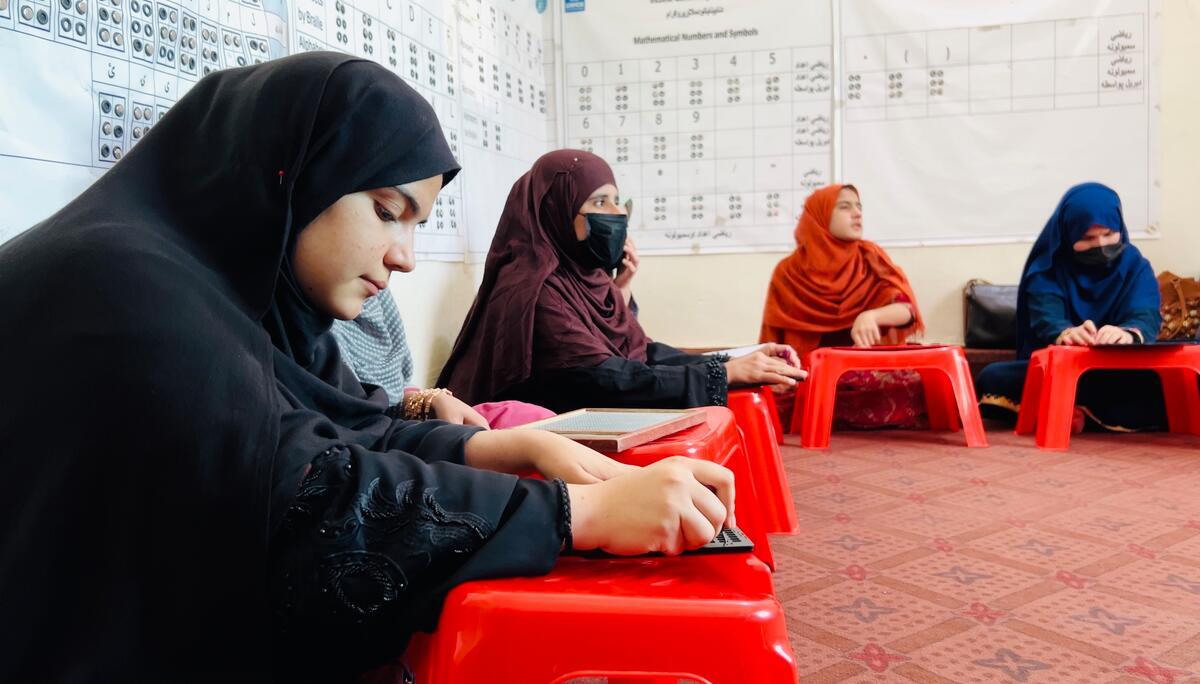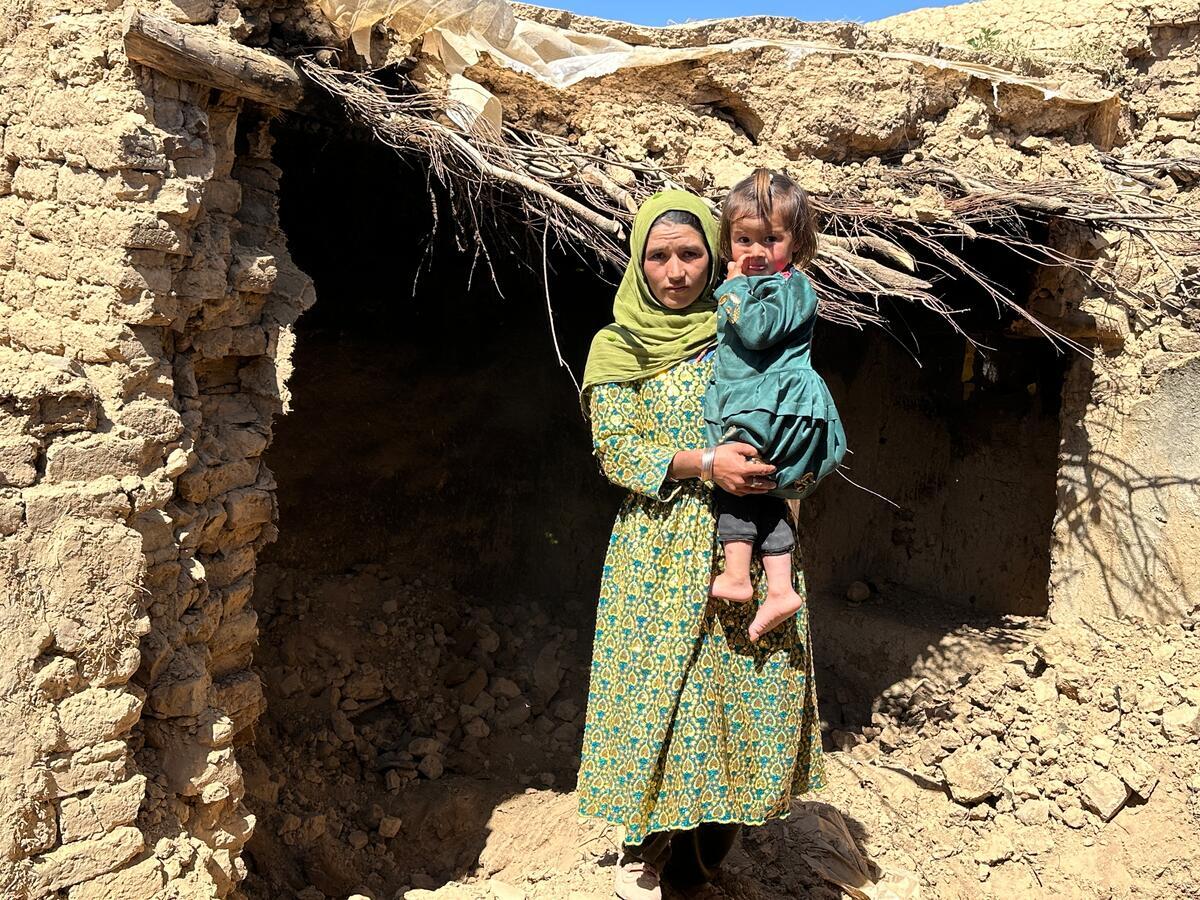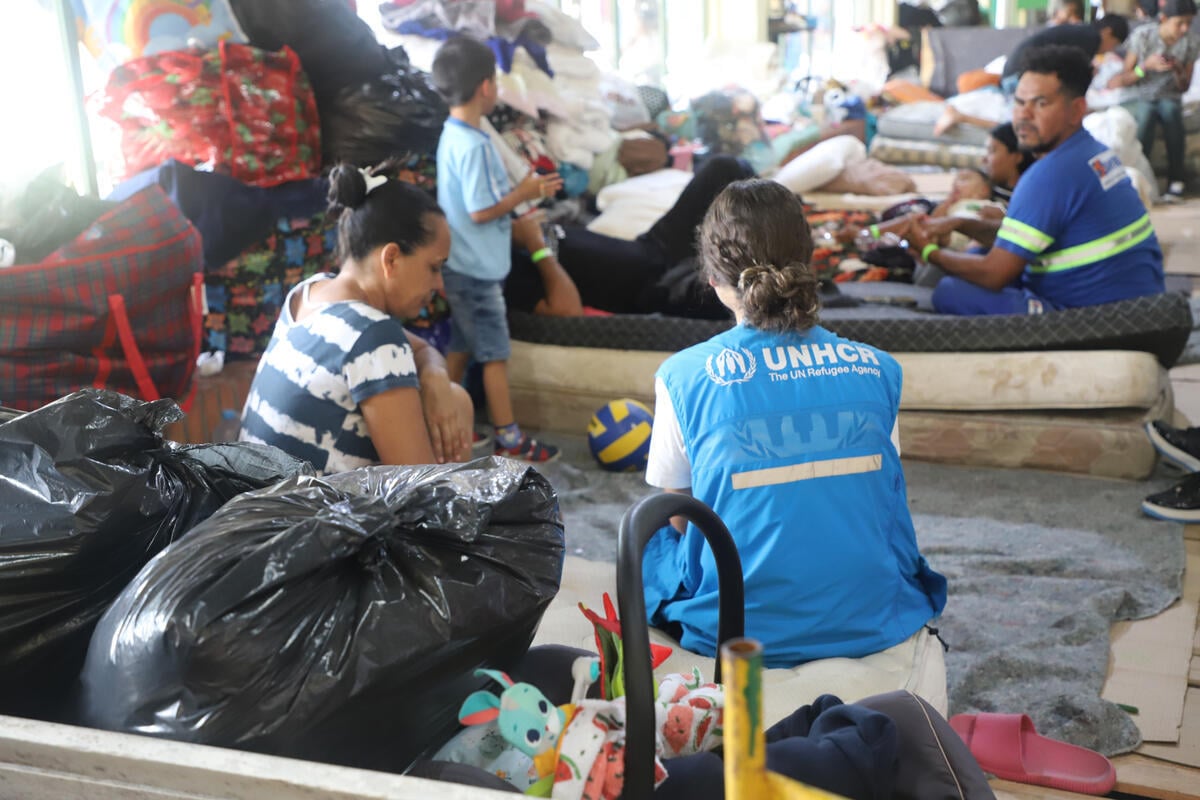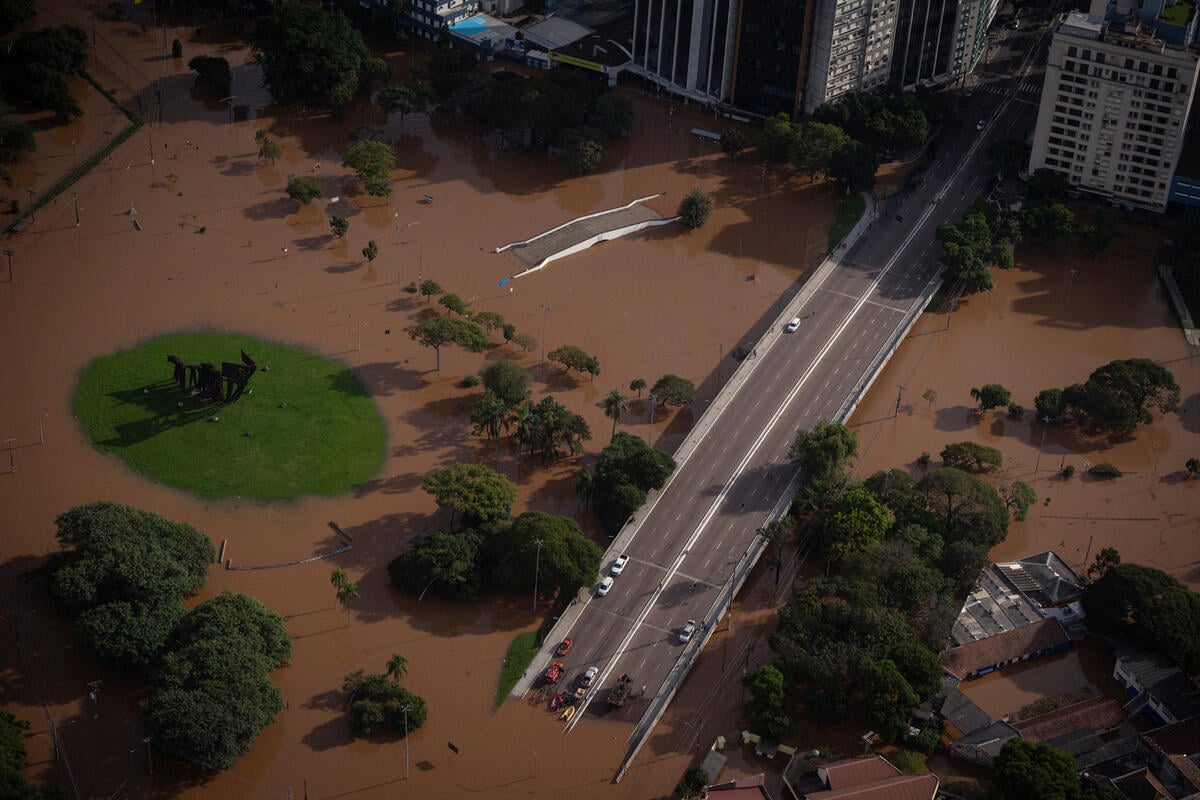Afghanistan Strategic Consultations set for Friday (October 7)
Afghanistan Strategic Consultations set for Friday (October 7)
A heads-up: The latest round of Strategic Consultations on Refugees and Population Movements To and From Afghanistan is being held on Friday, October 7, here in the Palais. It is being co-chaired by Mr. Richard Greene, Acting U.S. Assistant Secretary of State, Bureau of Population, Refugees and Migration (BPRM), and High Commissioner for Refugees António Guterres. Attending will be the governments of Iran, Pakistan and Afghanistan, donor governments and international organisations. They will be discussing future policy and arrangements for Afghans still outside the country, as well as the situation of millions of returnees.
The meeting is closed, but Mr. Greene and Mr. Guterres will be available to take your questions just after 18.00 hours Friday in front of Salle XXI, (bâtiment E, 1st floor). We'll have more details on Friday morning.
The meeting comes as a follow up to the Strategic Consultations in Brussels in February this year and provides an opportunity for the three governments, UNHCR, the donors and assistance agencies to build consensus on the way forward.
Afghanistan remains one of UNHCR's success stories: for the fourth year running repatriation to Afghanistan has been the highest in the world, with over half a million returnees expected in 2005 - and a total of 4.2 million since 2002. At the same time, the number of Afghan asylum claims in industrialised countries has plummeted by 80 percent since 2001, from over 54,400 to 9,300 in 2004. Despite many challenges, progress towards peace and stability in Afghanistan has kept attracting Afghans home. As a result, voluntary repatriation has continued with UNHCR's support. The commitment of the international community towards Afghanistan's reconstruction has been commendable and remains crucial.
Four years after the Taliban fell, however, there are a range of obstacles that prevent many of the remaining Afghans from returning home. Difficult social conditions, lack of land and housing, limited employment opportunities and instability in parts of the country, particularly in the south and south-east from where many refugees originate, still do not encourage return. About 3 million Afghans remain in Pakistan and Iran, which have generously hosted millions of refugees for years.
According to a March census in Pakistan and similar data gathered in Iran, most of these Afghans have either lived in the two countries for decades or were born there. Many have significantly contributed to the host communities. Some may never return to Afghanistan, a reality that needs to be taken into consideration for the future and which - among other issues - will be discussed at Friday's meeting.

